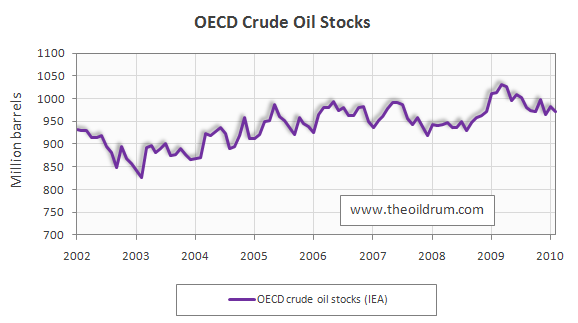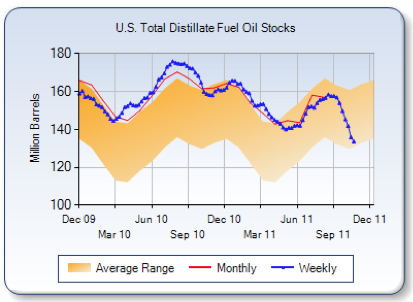Investing in the stock market can be a thrilling and lucrative venture. While many investors are drawn to well-established companies, there is an emerging trend towards small cap stocks, particularly in the oil industry. In this article, we will explore the rise of small cap oil stocks and the potential they hold for investors.
Introduction to Small Cap Stocks and Their Potential in the Oil Industry
Small cap stocks, with market capitalizations ranging from $300 million to $2 billion, present lucrative opportunities in the oil industry. These companies focus on niche markets or specific regions within the industry, allowing them to capitalize on untapped resources and overlooked opportunities.
Despite their volatility, small cap oil stocks offer significant potential for exponential growth and substantial returns for astute investors. However, thorough research and careful portfolio diversification are essential when investing in this segment of the market.
Understanding Small Cap Oil Stocks
Small cap oil stocks are exploration and production (E&P) companies operating in the energy sector. They focus on finding new oil reserves and extracting them efficiently. One key characteristic is their ability to react quickly to market conditions, giving them a competitive advantage over larger corporations burdened by bureaucracy.
Investing in small cap oil stocks offers advantages such as growth potential, flexibility, M&A opportunities, and portfolio diversification. These stocks have substantial growth potential, adapt quickly to changing market conditions, attract mergers and acquisitions, and help diversify investment portfolios.
Risks of Investing in Small Cap Oil Stocks
Investing in small cap oil stocks comes with risks that can significantly impact investment outcomes. These include volatility, as these stocks tend to be more volatile than large-cap stocks, and liquidity concerns due to lower trading volumes.
Financial instability is another risk, as smaller companies rely heavily on external funding and may face cash flow issues. Additionally, regulatory and political factors can affect small cap oil stocks, such as changes in government policies or environmental regulations.
Thorough research and due diligence are crucial for minimizing these risks and making informed investment decisions.
Trading at a Discount: Opportunities for Value Investors
Investing in small cap oil stocks provides value investors with the potential to find undervalued opportunities in the market. These stocks often trade at a discount compared to their true worth due to limited analyst coverage and market inefficiencies.
Value investors specialize in identifying undervalued assets and can leverage their expertise when evaluating small cap oil stocks. By analyzing financial statements, assessing management teams, and conducting thorough research, they uncover hidden gems with significant growth potential that are currently priced below their intrinsic value.
Small cap oil stocks may trade at a discount because they receive less attention from analysts, giving value investors an advantage. Market inefficiencies, such as sentiment biases or temporary fluctuations, also contribute to mispriced securities.
To identify these opportunities, value investors scrutinize financials, evaluate management teams, and research industry trends. Their comprehensive analysis allows them to capitalize on undervalued assets in the dynamic stock market.
Private Market Transactions: The Best is Yet to Come for Public Equities
Private market transactions involving institutional investors and private equity firms are on the rise in the small cap oil stock market. These transactions offer unique opportunities for investors to access promising companies before they go public.
By participating in private market transactions, investors can secure shares at favorable prices and potentially maximize their profits when these companies eventually go public or get acquired. Additionally, they benefit from the expertise of institutional investors and private equity firms who carefully evaluate investment opportunities.
However, investing in private market transactions comes with risks due to less regulation and transparency compared to publicly traded stocks. Therefore, thorough research and risk assessment are crucial.
In summary, private market transactions provide an exciting avenue for gaining exposure to small cap oil stocks before they hit the public exchanges. Investors should approach these opportunities with caution but can potentially reap significant returns in the realm of public equities.
Looking Ahead: Smaller-Cap Oil Equities May Re-Rate
As the oil industry evolves, smaller-cap oil equities have the potential to re-rate in terms of investor perception and valuation. More investors are recognizing the growth prospects and advantages offered by smaller companies, leading to increased demand for small-cap oil stocks.
This demand could result in a revaluation of these stocks and potentially drive their prices higher.
To navigate this changing landscape, investors should monitor emerging trends, technological advancements, and regulatory changes within the oil industry. These factors can significantly influence the future prospects of small-cap oil stocks and present exciting opportunities for proactive investors.
Investors should also consider the rising prominence of renewable energy sources, as companies that can adapt to this shift may experience positive re-ratings. Technological advancements and regulatory changes related to environmental standards can also impact the profitability and valuations of smaller-cap oil equities.
Conclusion
Investing in small cap oil stocks offers unique opportunities for high-growth potential and diversification. These agile companies, with their niche market focus, can provide significant returns for investors who navigate associated risks successfully.
However, thorough understanding of the characteristics and risks of small cap oil stocks is essential before making investment decisions. Conducting comprehensive research, staying informed about industry developments, and seeking professional advice when needed can position investors to take advantage of this evolving market segment.
[lyte id=’ygftMk41BtE’]






